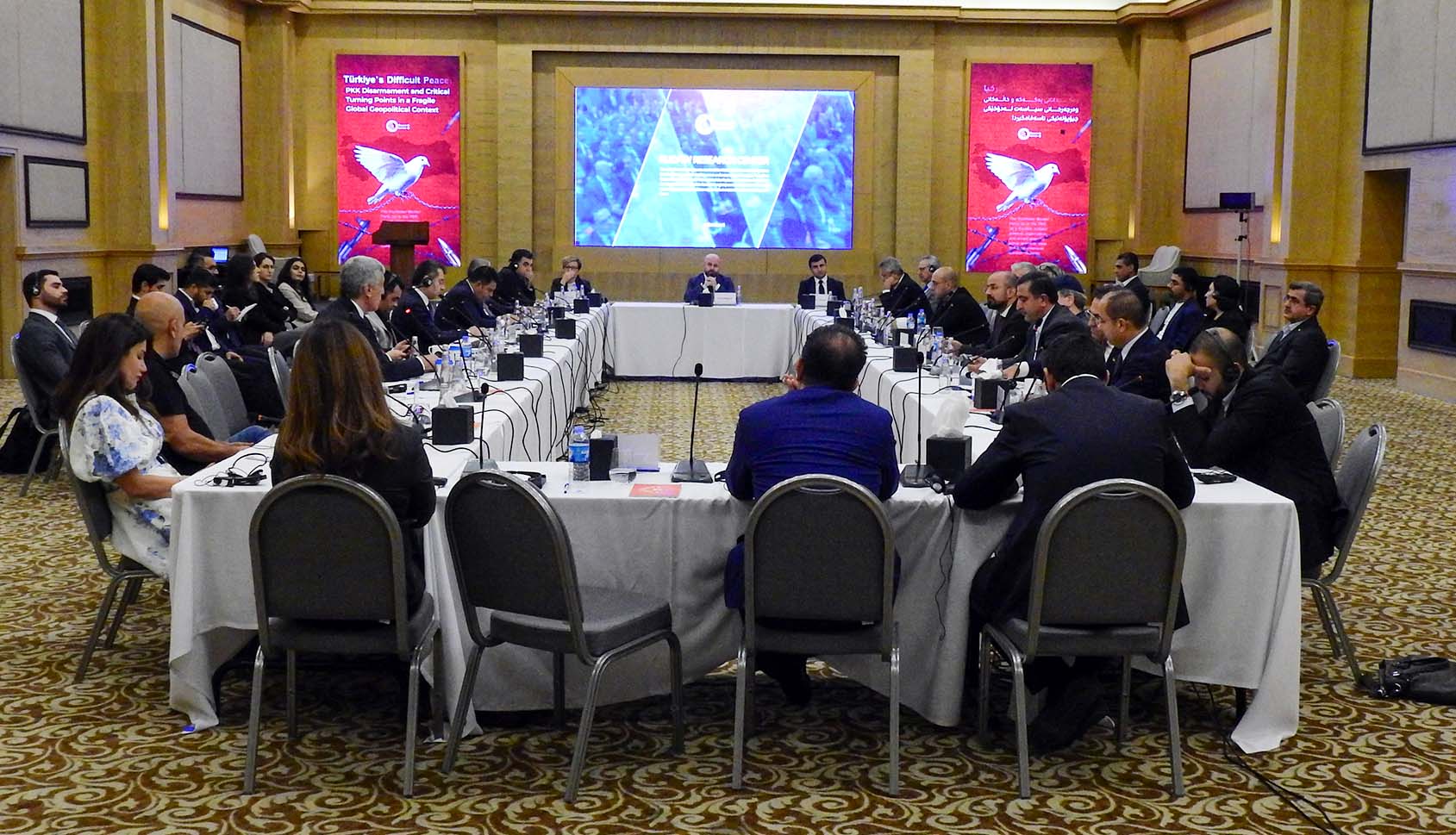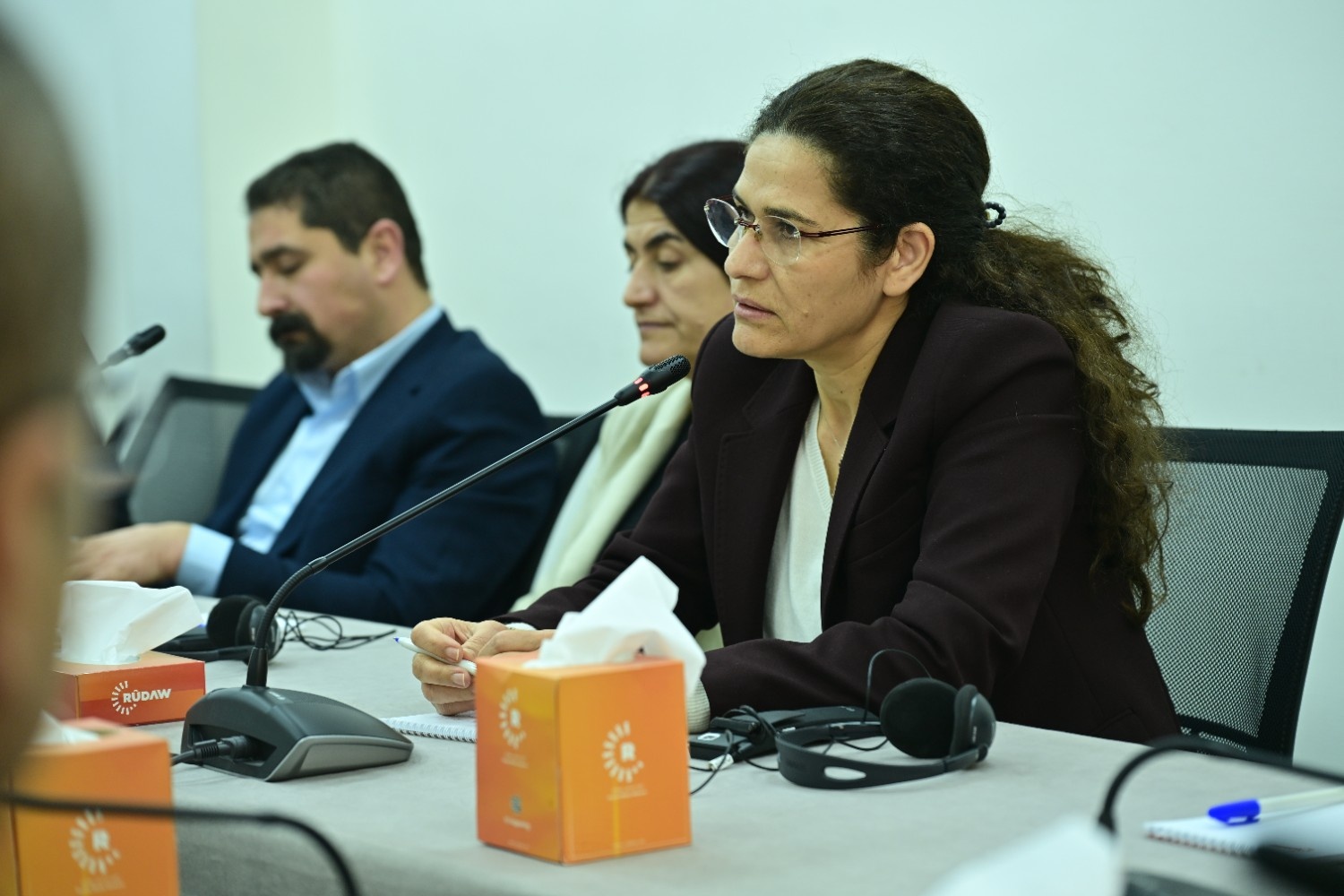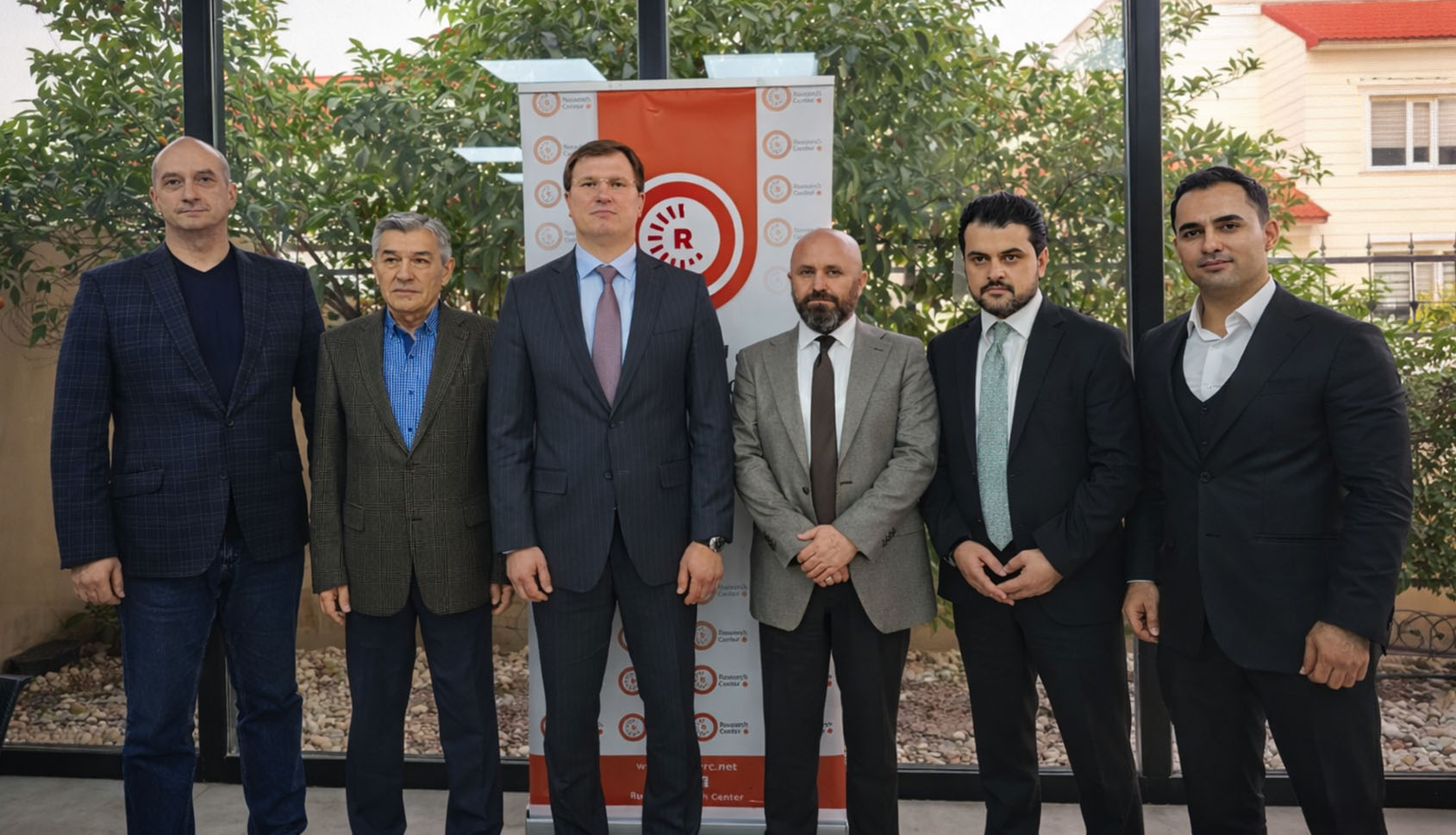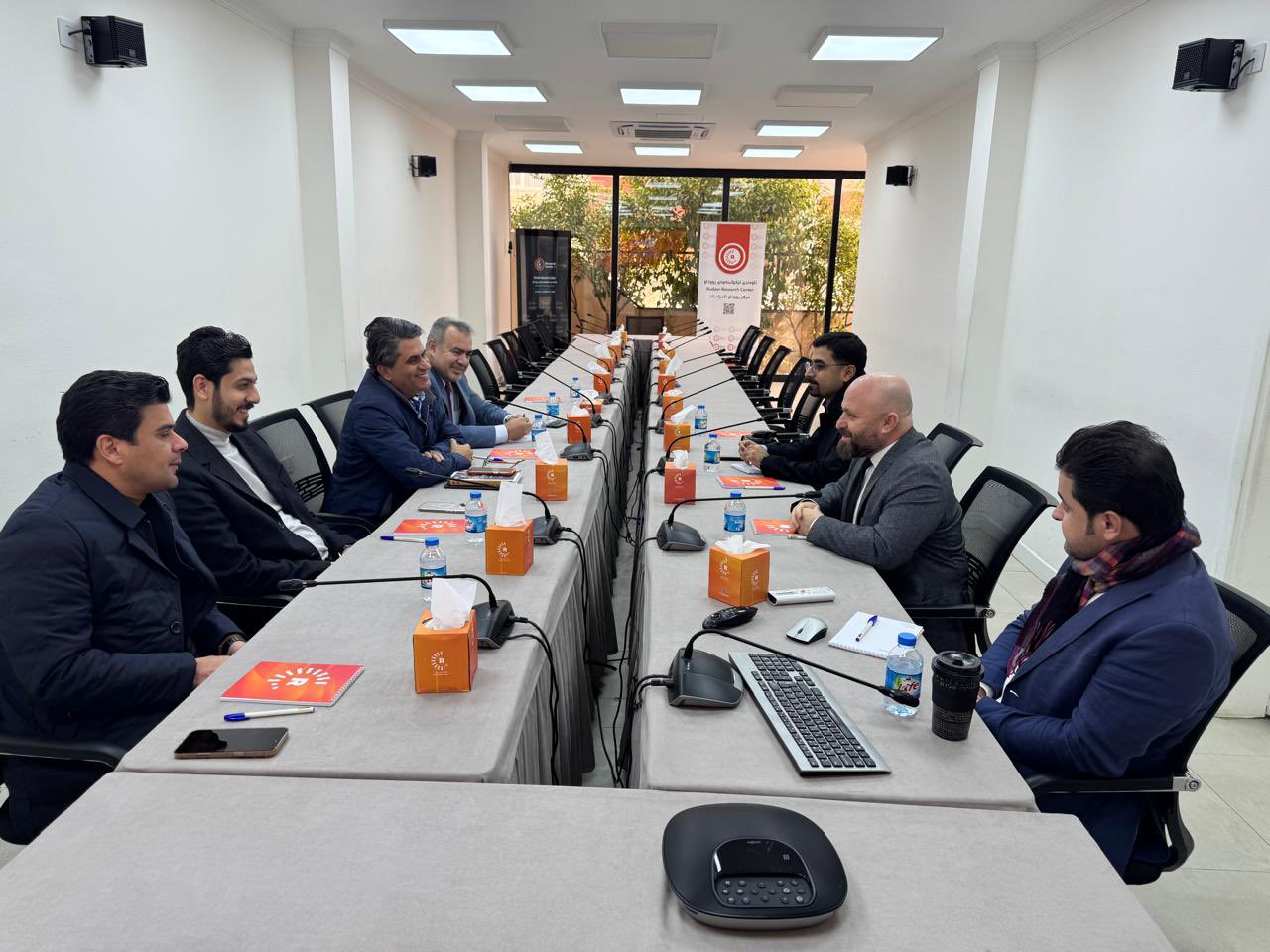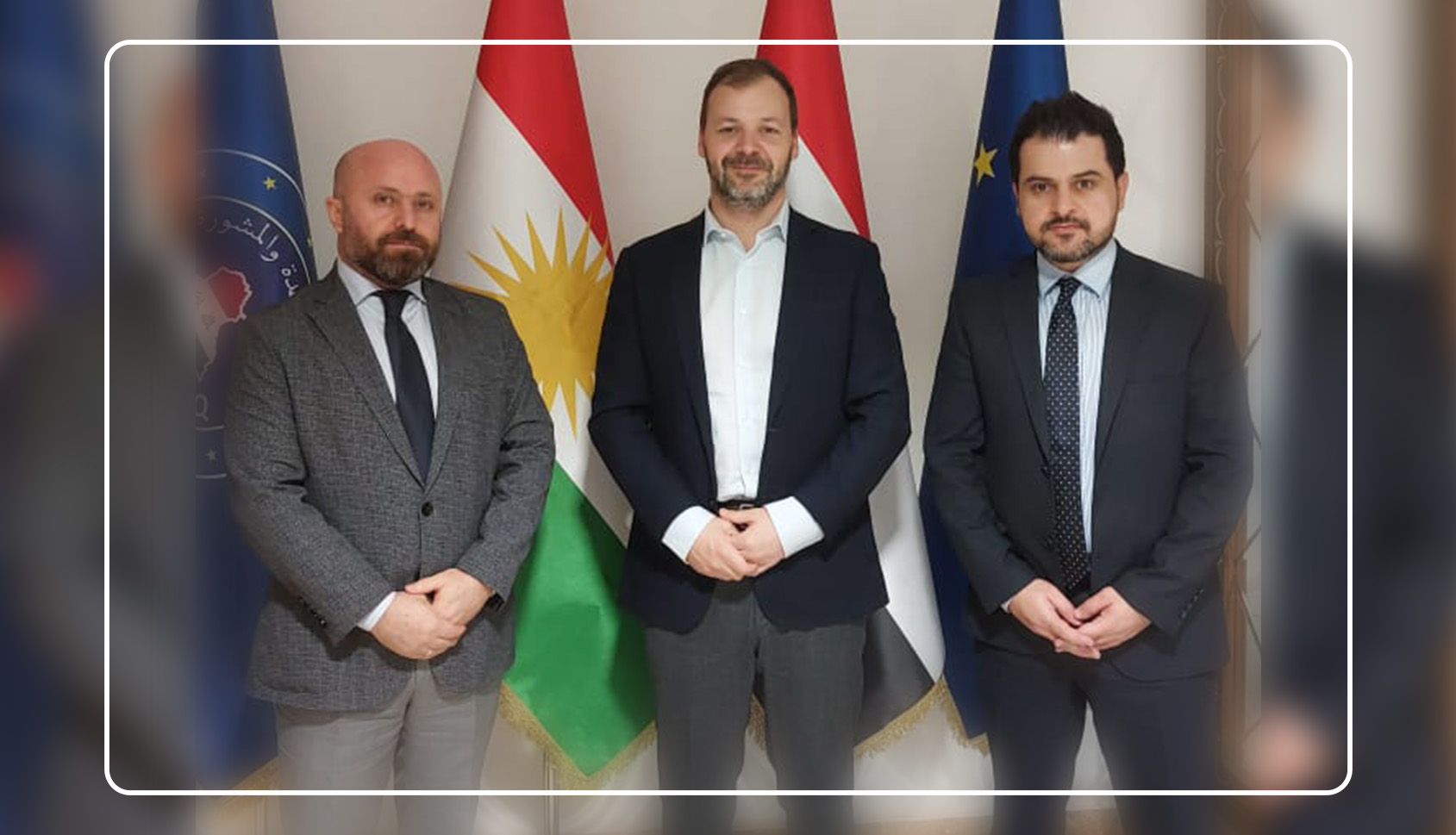Türkiye’s Difficult Peace: PKK Disarmament and Critical Turning Points in a Fragile Global Geopolitical Context
09-09-2025
On Monday, September 1, 2025, the Rudaw Research Center convened a one-day conference and closed-door roundtable under Chatham House rules with the participation of members of parliament, representatives of various parties from Türkiye and Northern Kurdistan, politicians, researchers, journalists, and figures involved in Türkiye’s peace process from both Kurdish and Turkish sides. The event was titled “Türkiye’s Difficult Peace: PKK Disarmament and Critical Turning Points in a Fragile Global Geopolitical Context.”
The PKK disarmament process represents a critical historical test for peace in Türkiye. While this process carries the potential to reshape and transform the country’s domestic political landscape, it also bears significant regional implications—particularly at a time when the world is navigating a fragile and unstable geopolitical environment.
During the closed roundtable, participants examined the dynamics of PKK disarmament, shifts in Türkiye’s domestic politics, and the broader regional consequences of this process. Discussions focused on how these developments may influence potential changes in the regional balance of power.
Discussion Topics
The Regional Dimension of the PKK’s Peace Talks and Disarmament
- How do regional states and influential external actors view the PKK’s disarmament process?
- What roles do the Kurdistan Region and Iraq play in shaping this trajectory?
- How do developments in West Kurdistan (Syria) and the situation in Sinjar affect the process—do they act as enablers or as obstacles?
The Domestic Dimension: Ensuring Stability and Building Confidence in Türkiye’s Future
- The ongoing internal debate over whether to continue or end the armed conflict between the state and the PKK.
- The reforms and policy adjustments required to ensure the success of the disarmament process.
- The capacity of Türkiye’s political system to address and accommodate Kurdish demands.
- Lessons learned from previous attempts at negotiation and conflict resolution between the PKK and the state.
At this juncture, the gathering proved critical, as it provided an open platform for political figures and other participants in the process to engage in a comprehensive dialogue that brought together all parties and addressed every issue at stake. Several important points were raised and discussed, alongside Abdullah Öcalan's message sent for the occasion, which highlighted the central themes of the event in both its domestic and regional dimensions.
With respect to the regional dimension, nearly all participants stressed that the driving forces behind this process were developments in the wider Middle East. These included Israel’s growing dominance in the region following the Hamas attacks, the regime change in Syria, the weakening of Hezbollah in Lebanon, as well as attacks on Iran. In particular, the fall of Assad in Syria and the rise of Ahmad al-Sharaa were highlighted as pivotal factors, especially regarding the future of the Syrian Kurds. On this point, there was broad consensus among the participants.
Another frequently discussed point was that Türkiye’s stance on Syria has further complicated matters. What raised particular concern was that the peace process in Türkiye had initially made promising strides and achieved notable progress. However, developments in Syria—directly or indirectly linked to this process—posed significant challenges. Specifically, the rise of a jihadist group that seized power and established a provisional government with a constitution emphasizing centralization and concentration of authority created deep unease among Syria’s other minorities, including the Kurds. A large portion of these Kurds are represented by the Syrian Democratic Forces (SDF).
Today, Syrian Kurds are calling for decentralization and a federal system that would allow them to manage their own affairs. This demand has become a source of serious concern for Türkiye, particularly given that Hay’at Tahrir al-Sham (HTS), now holding significant power in Syria, is considered closely aligned with Ankara. The Turkish state perceives Kurdish demands—voiced by the SDF, which Türkiye associates with the PKK—as an attempt to establish an autonomous entity akin to the Kurdistan Region in Iraq, something it finds unacceptable.
As a result, the interconnection of these issues creates a major obstacle to sustaining progress in the peace process, slowing down its momentum. Participants in the roundtable therefore emphasized that any development in Syria, or any advance in the peace process and the Kurdish question in Türkiye, would inevitably affect the other, given the deep interconnectedness between the two.
Another important point raised from the regional dimension concerned the role of regional actors in this issue. Participants discussed, in various ways, both the positive and negative roles of certain actors. They highlighted how many parties have played a positive and effective role, making significant and commendable efforts—particularly the authorities of the Kurdistan Region in Erbil and Sulaymaniyah. Political leaders there have had an influential role and are expected to continue playing a prominent and important role in the future as well. At the same time, however, participants also addressed the negative role of other actors, including individuals and groups driven by political, factional, or personal interests. With the advancement of peace and democracy, it was believed that such interests would gradually diminish. Yet some of these groups and individuals view the very notion of peace with anxiety and even dread, doing everything they can to obstruct the process and contribute to its failure. To overcome these obstacles, we must not lose hope; rather, we must rely on ourselves, work seriously, and demonstrate determination to move the process forward.
From the domestic dimension, one of the main issues discussed by roundtable participants was that in Türkiye, support for the peace process is relatively high, but trust and political will remain very low. Those who support the Kurdish movement do not trust the state; those aligned with the state do not trust the Kurdish movement; and opponents trust neither side. Some participants attributed the main reason for the failure of previous peace efforts to this “absence of will.” The roots of this mistrust lie in the fact that both sides—the Republic of Türkiye and the PKK—continue to perceive one another as enemies entrenched in opposing trenches. Even when a ceasefire is declared, each remains suspicious and fearful of the other, much like enemies who exchange wary glances when they cross paths. Therefore, it is essential to address this entrenched mindset and perspective so that the process can advance step by step and eventually deliver tangible results.
Another part of the lack of trust stems from weak confidence in the process itself. Although this 2024 peace process, initiated by Devlet Bahçeli, has taken several important steps, doubt and skepticism about its success continue to dominate. The roots of this mistrust go back to past experiences with failed peace initiatives between the two sides. Looking back, there have been several similar attempts at different times and under different circumstances, yet none reached fruition. For instance, in 1990, there was an effort mediated by European countries; between 2009 and 2011, a comparable attempt was launched in Oslo, but it too failed to deliver results. Even to this day, multiple efforts have been made to move the process forward, but none have achieved meaningful success. It is precisely because of these bitter past experiences that confidence in the current process has been weakened.
Nevertheless, some participants held a different perspective. They argued that this peace process is distinct and has already shown encouraging progress, and therefore deserves to be viewed with hope. Their optimism rested on several points. First, the fact that the initiative was launched by the leader of a Turkish nationalist party signals a significant shift in Türkiye’s approach—acknowledging that the only viable path to resolving this issue is through dialogue, negotiation, and peaceful settlement, rather than weapons and violence, which only perpetuate casualties on both sides. Öcalan’s message to the conference reinforced this interpretation, emphasizing that this process is different and carries the potential for success. Moreover, both the PKK and their imprisoned leader, Abdullah Öcalan, demonstrated goodwill by calling on the PKK to lay down their arms and embrace the path of peace. Within this framework, some PKK guerrillas in the Sulaymaniyah area disarmed. While this development brought a sense of relief, it also stirred unease within the Turkish state, which maintains that the PKK possesses far more sophisticated weaponry than the few Kalashnikovs that were symbolically burned.
Second, another difference between this current process and past processes is the formation of the “National Solidarity, Brotherhood, and Democracy Committee” in parliament, whose work has proceeded smoothly and with the agreement of all parties until now.
The third and most important point that caught the attention of those present was the manner in which the Turkish state uses language in its expressions regarding the process. This process is very sensitive and important, where the smallest factor could cause the collapse of the process and a return backward instead of moving forward. Therefore, the process needs to be handled very carefully, and types of expressions that would harm the process should not be used. For example, on one hand, the Turkish state praises this process as an important peace process that is in the interest of both sides - the President of Turkey, Recep Tayyip Erdoğan, has referred several times within this framework to the fact that Turks and Kurds were brothers and will remain brothers. But on the other hand, the Turkish state discusses this process as a matter of eliminating terror and terrorists. Such expressions in perspective and speech are concerning and do not serve the process's interests if the Turkish state truly wants the success of this process. Therefore, participants believed that the Turkish state needs to review its discourse and expressions regarding the process and adopt a different discourse that shows the state's good faith toward the process, in order to dispel the theme of doubt that all sides have regarding the process.
On the other hand, another opinion in the roundtable believed that what is important is the process itself, and that we are currently going through a critical moment, not only in the Middle East, but in the Black Sea and Mediterranean regions, where wars and conflicts continue, which are part of our geography. Therefore, amid the pain and suffering of the region, there is a positive development in Turkey that gladdens everyone's hearts and increases hope and optimism, then [it makes no difference] whether they call it Turkey without terror or the peace process.
Another essential point that was heavily emphasized and had consensus was the importance of this process, because they believed this process is not only dependent on the Turkish state and the fate of Kurds in that part of Kurdistan, but rather any outcome from this process could become a model for greater changes in the region and particularly the fate of Kurds in other countries of the region.
The PKK's disarmament, beyond being Turkey's internal issue, has regional factors and dependencies because when the PKK was fighting, it had an impact on all four parts of Kurdistan. Now if it lays down arms, it will have a positive impact. Furthermore, what was emphasized more was that the peace process needs bigger and more important steps; it's true that disarmament is part of the progress of the peace process, but it alone is not sufficient for fundamentally resolving the Kurdish question. Rather, what is more important is democracy and advancing democratization, because when an anti-democratic mentality dominates those in power, it creates anti-democratic public opinion in its wake. Creating a democratic alternative to public opinion may be somewhat difficult, but it is not impossible.
If all the states in the region examine the reasons for armed uprising by Kurds or any other nation, they will know that if democracy, freedom, and the right of self-determination are given to any nation, there will be no recourse to arms. Therefore, a democratic Turkey can provide all the fundamental rights of Kurds, and this can become a good example for the entire region and the situation of Kurds in all the surrounding countries. As Öcalan also says in his special message to the conference, if Turkey changes and the Kurdish situation advances more in terms of democracy, the region will change too.
Another difference between the current process and previous ones is the establishment of the “National Solidarity, Brotherhood, and Democracy Committee” in parliament. Its work has proceeded smoothly so far, with the agreement of all parties.
The third and most important point that drew attention was the language used by the Turkish state in describing the process. This is an extremely delicate and significant initiative, where even the smallest factor could cause its collapse and a regression instead of progress. For this reason, it must be handled with great care, avoiding expressions that could undermine the process. For example, on one hand, the Turkish state praises this effort as a historic peace process serving the interests of both sides. President Recep Tayyip Erdoğan has repeatedly emphasized within this framework that Turks and Kurds were brothers and will remain brothers. Yet on the other hand, the state continues to frame the issue as one of eradicating terror and terrorists. Such contradictory discourse is troubling and does not serve the interests of the process if the state genuinely seeks its success. Therefore, participants stressed that the Turkish state should review its rhetoric, adopting a new discourse that demonstrates good faith and helps dispel the persistent atmosphere of doubt surrounding the process.
Another perspective voiced during the roundtable was that what matters most is the process itself. We are living through a critical moment, not only in the Middle East but also in the Black Sea and Mediterranean regions, where conflicts and wars continue as part of our broader geography. Against this backdrop of pain and turmoil, the positive development underway in Türkiye brings joy to people’s hearts and fosters hope and optimism. In that sense, it makes little difference whether one calls it a peace process or a process of Türkiye without terror.
An additional point of broad consensus was the significance of this process, since its implications go beyond the relationship between the Turkish state and the Kurds in that part of Kurdistan. Any outcome could become a model for broader transformations in the region, particularly for the future of Kurds in other countries.
The disarmament of the PKK, while often portrayed as a domestic issue of Türkiye, has clear regional dimensions. When the PKK was engaged in armed struggle, its impact was felt across all four parts of Kurdistan; therefore, its laying down of arms would also carry positive regional effects. Yet participants emphasized that the peace process requires more substantial steps. While disarmament is a component of progress, it alone cannot resolve the Kurdish question. What is more critical is deepening democracy. When authoritarian and anti-democratic mentalities dominate those in power, they inevitably foster anti-democratic attitudes in society. Although building a democratic alternative to that outlook may be challenging, it is by no means impossible.
If states across the region examine the root causes of armed uprisings—whether by Kurds or by any other people—they will realize that when democracy, freedom, and the right to self-determination are guaranteed, there is no resort to armed struggle. A truly democratic Türkiye could ensure the fundamental rights of Kurds, setting a powerful example for the entire region and for the situation of Kurds in neighboring countries. As Abdullah Öcalan also stressed in his special message to the conference, if Türkiye undergoes a democratic transformation and advances the Kurdish cause in this direction, the entire region will change as well.
List of Participants:
Mehmet Mehdi Eker, Former Minister of Food and Agriculture, AK Party
Mithat Sancar , Member of Parliament; Member of the İmralı Delegation (DEM Party)
Bülent Kaya, Member of Parliament; Member of the National Union of Brotherhood and Democracy Commission, Felicity Party (Saadet Partisi)
Oğuz Kaan Salıcı, Member of Parliament; (CHP)
Cengiz Çandar, Member of Parliament, Middle East Expert, and veteran analyst of Kurdish–Turkish peace initiatives.
Roj E. Girasun, General Director of Rawest Research Center
Mala Bakhtiar, Politician and Former Chief of the Executive Bureau of the PUK Political Bureau
Bayram Bozel, the Chairman of the Kurdistan Socialist Party (PSK)- Türkiye
Ako Mohammed, CEO of Rudaw Media Network
Ziryan Rojhelati, Director of Rudaw Research Center
Serkan Ramanlı, Member of Parliament, and Deputy Chairman responsible for Public Relations and Promotion at HÜDA PAR
Dr. C. Kani Torun, Former Member of Parliament-Türkiye
Nurettin Yaşar, Former Member of the Turkish Parliament, AK Party
Hüseyin İMİR, Deputy Chairman of HÜDA PAR and International Relations Chai
Falah Mustafa, Senior Foreign Policy Advisor to the President of the Kurdistan Region
Mohammed Ameen Penjweni, Political Analyst and Commentator
Mustafa Shafiq, Political Analyst and Commentator
Sami Argushi, Political Analyst
Kadir Temiz, the Director of the Center for Middle Eastern Studies (ORSAM)
Serhan Afacan, President of the Center for Iranian Studies (İRAM) in Ankara, Türkiye
Ali Rıza Çelik, the Chairman of the Board of Directors at Bayetav Research Center
Reha Ruhavioğlu, the Director of the Kurdish Studies Center
Berfin Coşkun, a Researcher and Project Coordinator at the Kurdish Studies Center (KSC)
Kubra Sagir, Kurdish Studies Center & PhD Candidate in Law, Political Studies & Philosophy
Feyzullah Tuna Aygün، Iraq Studies Expert, ORSAM (Center for Middle Eastern Studies, Ankara)
Dr. Omer Nuradini, Lecturer at the College of Law and Politics, Salahaddin University
Rasan Ramzi, Researcher
Dr. Tariq Jawhar, Researcher
Shirwan Yousef, Researcher
Ahmad Kurdo, Researcher
Ruşen Çakır, Journalist
Didem Özel Tümer, Journalist
Yıldıray Oğur, Journalist
Reyhan Aktar, Entrepreneurs

